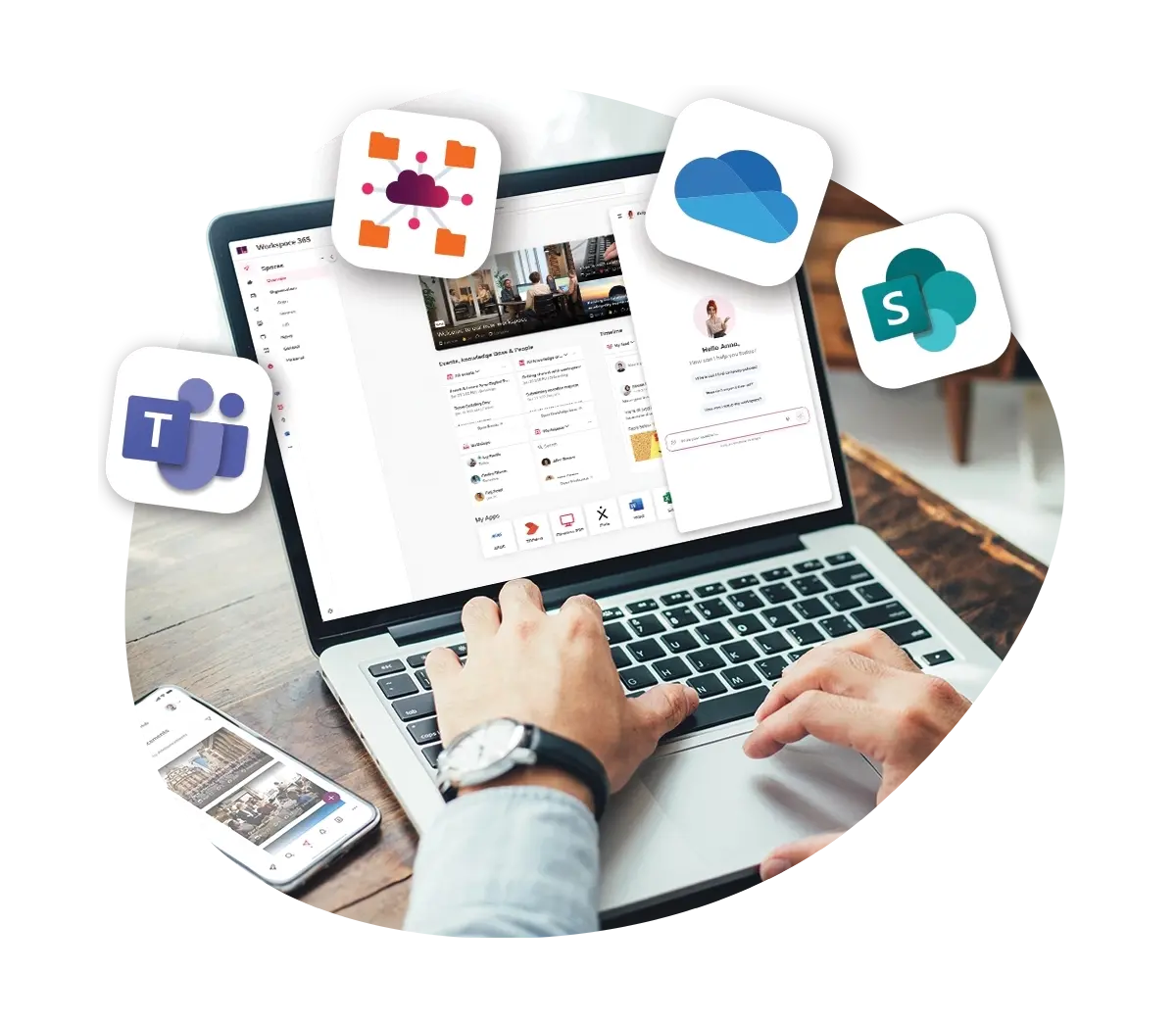Digital transformation in healthcare has never been more important. In 2020, the COVID-19 pandemic has presented the world with enormous challenges, putting healthcare systems under enormous strain as a result of the sheer number of patients involved and the speed at which changes must be implemented. Here, technology and digital transformation have huge potential in helping to meet these challenges, and in driving new opportunities for the future.
What is digital transformation in healthcare?
Digital transformation in the healthcare industry can be regarded as implementation and adoption of the technology that will drive a significant change in the way healthcare is provided to patients. As a result, this will transform working practices in the industry and result in significant improvements to the care of patients.
Digital transformation can cover a wide range of different areas, including hospital management, cutting-edge innovation in clinical practices, interaction between staff and customers, the use of big data to drive insights and even the range of healthcare apps we have on our mobile phones. Digital technologies are already impacting and disrupting the healthcare industry in significant ways, and look set to do so even more in the future.
The benefits of digital transformation in healthcare
COVID-19 has shown why we must have access to effective healthcare, both now and in the future. The digital transformation of the healthcare industry is an important factor in ensuring that happens in several different ways, using:
-
Cutting-edge technology to research and deliver improved clinical practices and treatments, such as using robotics to advance surgical practices.
-
A.I. and Machine Learning to deliver more accurate and earlier diagnoses, as well as support preventative healthcare measures.
-
Systems and applications to deliver efficiencies in a range of processes including hospital administration, prescription delivery, how patient data is managed, and the delivery of programs at scale, such as mass vaccinations.
-
Mobile apps to revolutionise procedures for clinical staff working on the frontline.
-
Customer apps to support patient health and wellbeing.
-
Online communication tools and virtual reality to allow remote consultations between medical staff and patients.
-
Mobile access to the digital workplace for frontline healthcare workers to drive efficiency and engagement.
What are the challenges of digital transformation in healthcare?
There are a number of challenges associated with the digital transformation of the healthcare industry.
Early digital maturity and the relative culture
Although there are already some cutting edge and inspiring examples of how technology is revolutionising specific areas of medicine and making exciting advances, compared to other industry sectors, healthcare is at a relatively early stage of digital maturity. This is due to a variety of factors including regulation, investment, and industry culture. Early digital maturity can mean healthcare digital transformation may take longer to achieve, as for many organisations the foundations like core systems, underlying data governance and convincing staff to use new technology may still need development.
Patient habits and expectations are changing
The habits and expectations of patients are changing, as reflected in the use of healthcare-related apps, and a desire for on-demand healthcare at more convenient times. There are also increasing expectations around “customer-service”. These trends are impacting the way healthcare must be delivered to patients, with the industry needing to move to new patterns of interaction with patients, often with a greater emphasis on digital experiences.
Pace of change
The pace of change in the healthcare industry is unprecedented, with pressure to move quickly; when there is a need to drive rapid change at-scale, it can add an additional layer of complexity.
Data privacy and security
The safeguarding of privacy surrounding patient data and protection against ongoing cyber-security threats is a significant challenge. Particularly when trying to use big data to drive insights that can improve medical care or advance efficiencies in how patients’ medical records are kept. The necessity of ensuring compliance and minimising risks is paramount, for example, ensuring HIPAA or GDPR compliance in patient data protection.
COVID-19
The pandemic is ongoing, and will continue to put a huge logistical pressure on the healthcare industry in several areas, including ensuring levels of patient care, guaranteeing the safety of frontline clinical staff and now administering mass vaccination programs.
Digital ethics
The use of technology to advance healthcare practices can, like in all areas of advancing medicine, raise challenging ethical questions. For example, from time to time, the use of A.I. and advances in genetics can result in difficult questions for the healthcare industry to consider.
Healthcare digital transformation trends
There are a number of key trends in digital transformation in the healthcare industry which will continue to have significant influence.
Patient healthcare apps and wearables
There are an increasing number of mobile apps and wearables that help patients to self-diagnose issues, provide healthcare and wellbeing information, track fitness, and monitor personal health-related information. The digital transformation of the healthcare industry is increasingly leveraging these apps, as shown in the number of COVID-19 tracking apps recently downloaded.
Remote consultations
Remote consultations with patients delivered using tools like Zoom and specific healthcare applications were starting to occur already, but have dramatically increased with the COVID-19 pandemic. This trend is likely to continue, and has advantages and disadvantages for both patients and medical staff. We can also expect it to continue to be an area of healthcare digital transformation, perhaps with more use of Augmented and Virtual Reality.
A.I. and machine learning
The ability for Artificial Intelligence (A.I.) and Machine Learning to analyse patient and medical data and deliver insights that can help advance early diagnosis or suggest preventative treatments, is one of the most exciting areas of healthcare digital transformation. This is likely to be a focus for years to come.
Movement to the cloud
The cloud has made its mark on virtually every industry, with healthcare being no exception. Some parts of the healthcare industry are less advanced in their cloud journey, and the movement of more services and data to the cloud is a key theme in healthcare digital transformation.
Big data and digital records
Linked to both A.I. and movement to the cloud, the greater digitisation of patient data and electronic medical records is a focus for digital transformation, with the ability to revolutionise processes within hospitals, allow patients to access their data remotely and also support the “big data” approaches needed to drive A.I. and analytics. Ensuring the data privacy of patients is a significant challenge in this area.
Digital employee experience for frontline staff
Like many other industries with a large proportion of deskless and frontline staff, new mobile apps are providing significant opportunities to engage staff with digital communications and deliver efficiencies by opening up access to digital services and information. Here, improving the digital employee experience can positively impact employee engagement and healthcare delivery.







